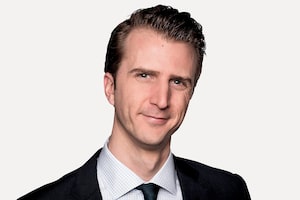What Elon Musk is doing follows a pattern. A smart, but brash, technology obsessive dreams of disrupting an industry, and to do it, cares little about profit.CARLOS BARRIA/Reuters
Everyone has an opinion about Elon Musk’s pursuit of Twitter Inc. TWTR-N Depending on what you read, he’s either a visionary, a saviour or delusional.
Mr. Musk will always be a magnet for hot takes – he likes it that way – but this tale is, in many ways, about more than him. Few things encapsulate the past decade of reckless financial behaviour in Silicon Valley better than this takeover attempt.
What Mr. Musk is doing follows a pattern. A smart, but brash, technology obsessive dreams of disrupting an industry, and to do it, cares little about profit. The goal is power and market share. The money will eventually come, the obsessive promises.
In Silicon Valley, it is a familiar story: fascination with technology, and power, triumphing over financial common sense.
It was this way with Uber Technologies Inc. UBER-N, which has lost US$19-billion over the past five years, and with Spotify Technology SA SPOT-N, the music streaming and podcast service that lost €2.6-billion over the same period. They’re just the tip of the iceberg.
As for Twitter, the company has swung in and out of profitability for the past few years, but its track record is rather weak, with a cumulative loss of almost US$1-billion over the past nine years. Yet Mr. Musk was willing to bid US$44-billion for it.
To this end, he’s gone so far as to suggest Twitter’s profit doesn’t matter to him; this is about free speech. It is all part of the Silicon Valley ethos that just won’t die. Public investors have finally started selling technology stocks, realizing that many of the valuations were not realistic – see Netflix – but Mr. Musk and venture capitalists still believe in dreams, many of which are so far fetched.
Consider what Jack Dorsey, a Twitter co-founder and former CEO, wrote on the platform Monday night. “In principle, I don’t believe anyone should own or run Twitter. It wants to be a public good at a protocol level, not a company. Solving for the problem of it being a company, however, Elon is the singular solution I trust. I trust his mission to extend the light of consciousness.”
Why is Elon Musk buying Twitter? What you need to know about the $44-billion deal
The contradictions are quite something. For one, Mr. Dorsey doesn’t believe anyone should own or run Twitter, but in the definitive book on Twitter’s founding by Nick Bilton, a former New York Times technology reporter, Mr. Dorsey is painted as having a huge ego, which helps explain why he fought ruthlessly to become the company’s CEO. Mr. Dorsey will also make US$978-million off the sale, because he’s still the seventh-largest shareholder.
Mr. Dorsey also wrote that “Twitter as a company has always been my sole issue and my biggest regret. It has been owned by Wall Street and the ad model. Taking it back from Wall Street is the correct first step.”
The reality: Wall Street is what gave the deal legitimacy. Just last week, Twitter’s stock was trading well below Mr. Musk’s offer price, because shareholders had no idea if he could finance it. It was only when 12 banks, including Royal Bank of Canada and Canadian Imperial Bank of Commerce, stepped up to underwrite a US$25.5-billion debt package that the formal bid came together.
As for the ad revenue model, that was Mr. Dorsey’s doing, considering he was CEO for six years after Twitter went public. Ads currently generate 90 per cent of its revenue. They could be scrapped in favour of a subscription business model, but that would be a pretty bold thing to do.
The interest rates on Mr. Musk’s debt financing package varies by tranche, but in total, analysts expect the the annual interest expense to total roughly US$850-million, 3.1 times Twitter’s operating income last year.
Could Twitter ever be a very profitable business? Sure, anything’s possible. It doesn’t have the same reach as Facebook or Instagram, but it’s got a rather loyal user base. The secret to success for many technology companies is making most of their money off devoted users. A lot of people on Twitter have threatened to leave the platform over the years, but very few ever do that for good.
But there is no guarantee Mr. Musk – with Mr. Dorsey’s support – are the ones who will make it happen. They are already talking about Twitter in the same tone they use for Bitcoin, the cryptocurrency they have both bet heavily on. To them, Twitter and Bitcoin are pure. Lately, though, Bitcoin is struggling to stay relevant.
The major hurdle to this pure vision is that humans are actually quite messy. Tech companies have tried to use artificial intelligence to counter our idiosyncrasies, including our tendency to turn vile online when we can be anonymous, but it hasn’t worked. Meanwhile, Mr. Musk wants to remove what he sees as Twitter’s current barriers to discourse.
This very disconnect was on display last night in Mr. Dorsey’s series of tweets, which started with a link to the song Everything In Its Right Place by the band Radiohead. The meaning: In Mr. Musk’s hands, Twitter is where it should be.
Yet Radiohead’s signature album, OK Computer, was about technology ruining us, and the feelings of dread and alienation that come from living in an increasingly self-indulgent and technologically-dependent society. Sound familiar?
Your time is valuable. Have the Top Business Headlines newsletter conveniently delivered to your inbox in the morning or evening. Sign up today.
 Tim Kiladze
Tim Kiladze